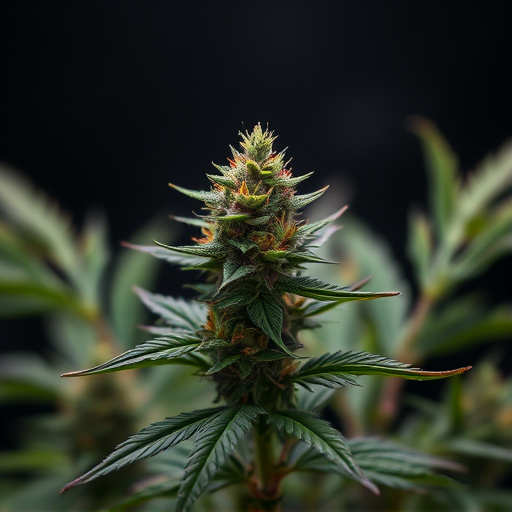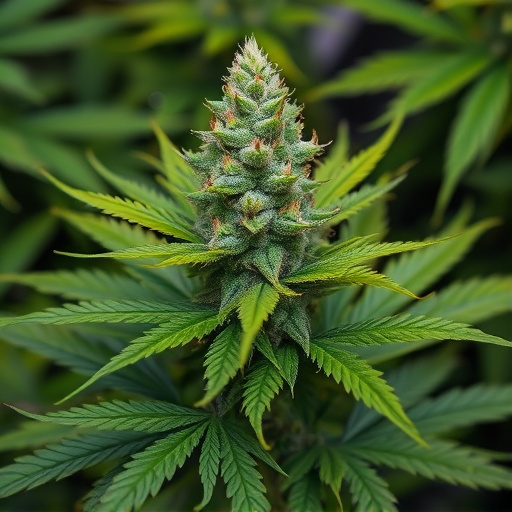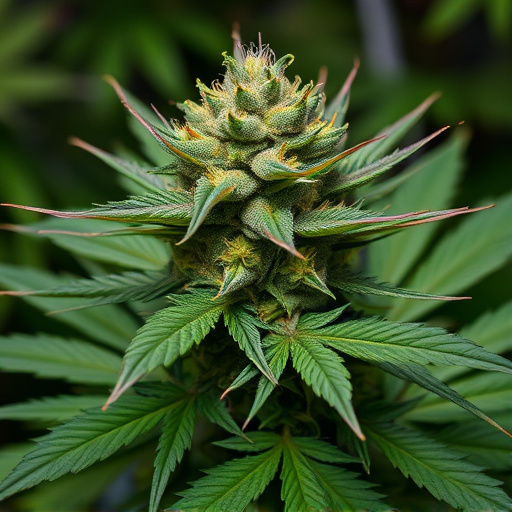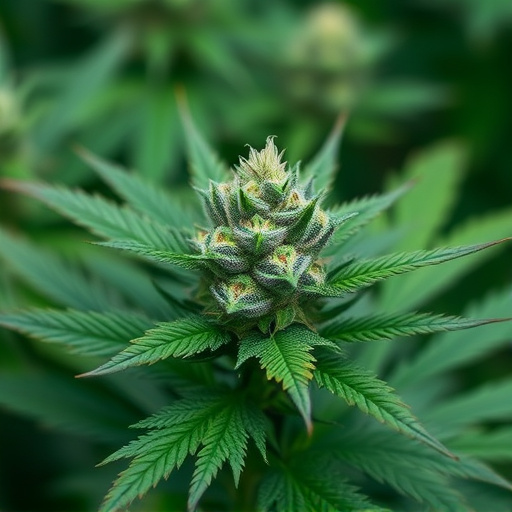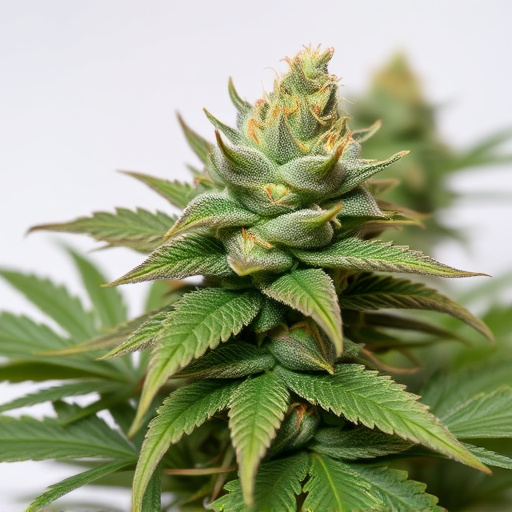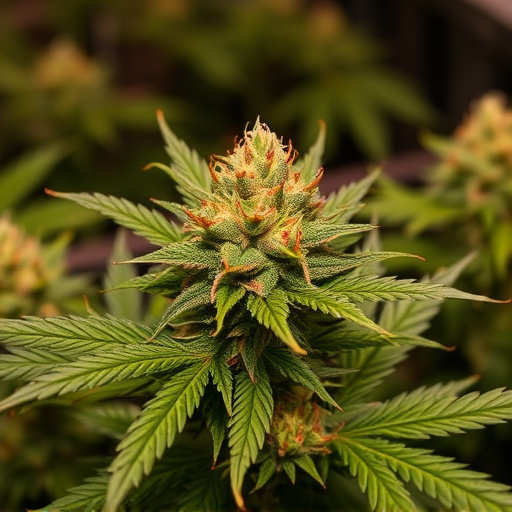Potent cannabis strains, rich in cannabinoids like THC and CBD, offer promising therapeutic avenues for managing anxiety, depression, and PTSD. High CBD strains provide calming effects without psychoactive side effects, while terpenes enhance the benefits of these compounds. Understanding these strains and their profiles allows individuals to navigate a diverse landscape of options tailored to unique mental health needs. However, more research is needed to fully understand long-term effects and ideal strain/dosage personalization.
Can cannabis flower offer a natural approach to improving mental health? This question has sparked growing interest in recent years. This article delves into the complex relationship between cannabis and mental wellness, exploring how understanding its effects can guide us towards specific potent cannabis strains for conditions like anxiety, depression, and PTSD. We’ll also discuss potential benefits, considerations, and future research directions in this evolving field.
- Understanding Cannabis and Its Effects on Mental Health
- Exploring Potent Cannabis Strains for Specific Mental Health Conditions
- Potential Benefits, Considerations, and Future Research Directions
Understanding Cannabis and Its Effects on Mental Health
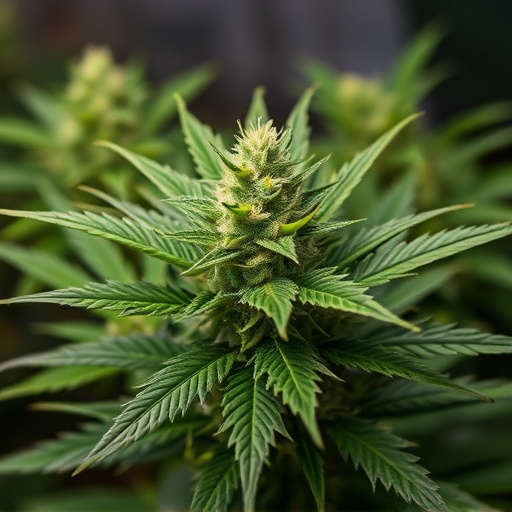
Cannabis, with its various compounds and terpenes, has been a subject of interest in the mental health realm for decades. While recreational use is a well-known aspect, cannabis’s potential therapeutic benefits, especially for mental wellness, are gaining significant attention. The plant contains over 100 cannabinoids, with tetrahydrocannabinol (THC) and cannabidiol (CBD) being the most studied. THC, known for its psychoactive effects, can positively impact mood and reduce symptoms of anxiety and depression in certain individuals. However, it’s crucial to distinguish between recreational and medicinal use, as higher THC content in potent cannabis strains may lead to adverse effects.
Cannabidiol, on the other hand, is gaining popularity due to its potential mental health benefits without inducing psychoactive reactions. Research suggests that CBD may help manage anxiety, reduce stress, and improve overall mood. Balanced or low-THC potent cannabis strains are often preferred for their potential to offer therapeutic effects while minimizing unwanted experiences. Understanding the unique profiles of different strains can be key to harnessing cannabis’s potential as a complementary tool in mental health management, offering hope for those seeking alternative approaches to well-being.
Exploring Potent Cannabis Strains for Specific Mental Health Conditions
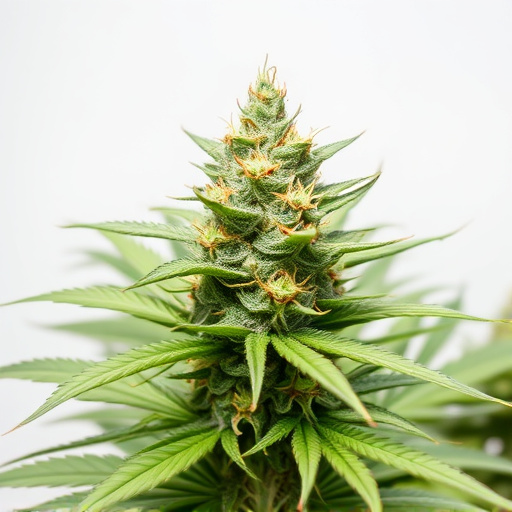
Exploring Potent Cannabis Strains for Specific Mental Health Conditions
In the realm of mental health, cannabis flower has garnered significant attention due to its potential therapeutic benefits. Certain potent cannabis strains have shown promise in alleviating symptoms associated with conditions such as anxiety, depression, and post-traumatic stress disorder (PTSD). For instance, high CBD strains are often recommended for their calming effects and ability to manage stress and anxiety without inducing psychoactive sensations. These strains can provide a natural alternative for individuals seeking non-pharmaceutical interventions.
Additionally, specific terpenes found in potent cannabis strains contribute to their unique mental health benefits. Terpenes like limonene, known for its uplifting and soothing properties, can enhance the overall effect of THC or CBD, creating a more balanced and therapeutic experience. By carefully selecting these potent cannabis strains and understanding their terpene profiles, individuals can navigate a growing landscape of options tailored to specific mental health needs.
Potential Benefits, Considerations, and Future Research Directions
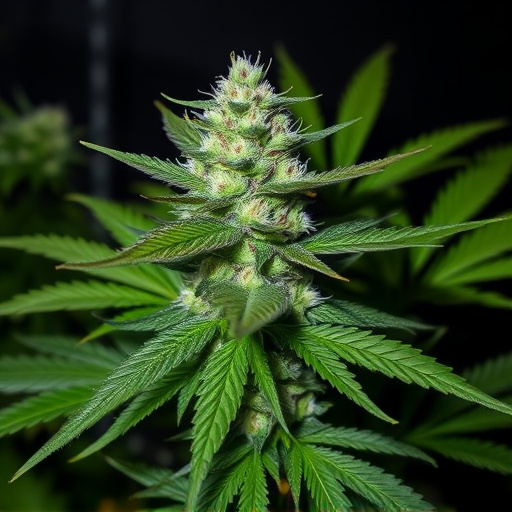
Potential Benefits and Considerations
There is growing interest in exploring the potential therapeutic effects of cannabis, particularly its flower, on mental health. Several studies suggest that specific potent cannabis strains may offer benefits for conditions such as anxiety, depression, and post-traumatic stress disorder (PTSD). Cannabinoids like THC and CBD have shown promise in reducing symptoms, improving mood, and promoting relaxation. Some users report improved sleep quality, increased appetite, and a sense of calm after consuming cannabis flower.
However, it’s crucial to consider that the relationship between cannabis and mental health is complex. While small-scale studies indicate positive outcomes, more extensive research is needed to fully understand the long-term effects. The ideal strain and dosage vary from person to person, emphasizing the importance of personalized medicine. Additionally, potential risks and side effects, such as heightened anxiety or cognitive impairment in certain individuals, must be thoroughly investigated. Future research should focus on identifying specific cannabinoid profiles and delivery methods most beneficial for different mental health disorders, ensuring safe and effective treatment options.
While cannabis flower shows promise in potentially improving mental health, it’s crucial to remember that research is still ongoing. Exploring specific potent cannabis strains for conditions like anxiety, depression, and PTSD offers hope, but individual responses vary greatly. As we navigate this complex landscape, future research must continue to scrutinize both the benefits and considerations, ensuring safe and effective integration of cannabis-based treatments into mental health care.





